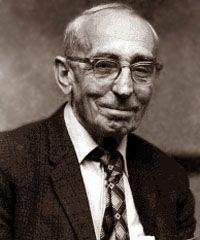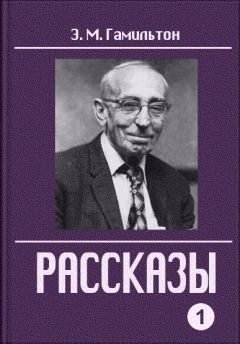Пользователь - o 3b3e7475144cf77c
На сайте mybooks.club вы можете бесплатно читать книги онлайн без регистрации, включая Пользователь - o 3b3e7475144cf77c. Жанр: Прочее издательство неизвестно,. Доступна полная версия книги с кратким содержанием для предварительного ознакомления, аннотацией (предисловием), рецензиями от других читателей и их экспертным мнением.
Кроме того, на сайте mybooks.club вы найдете множество новинок, которые стоит прочитать.

Пользователь - o 3b3e7475144cf77c краткое содержание
o 3b3e7475144cf77c читать онлайн бесплатно
live in a lodging-house room. Yet he was marching on air because of his pride in the party and
its achievements. He worked nights and Sundays at a variety of voluntary tasks, and had never
received a penny of compensation—unless you counted the various party festivals, and the
fact that the party had power to force his employers to grant him a week's holiday to attend the
Parteitag. Both he and Elsa swelled with pride over this power, and a word of approval from his
party superior would keep Karl happy for months. He thought of the Führer as close to God,
and was proud of having been within a few feet of him, even though he had not seen him. The
"treasure" had been one of many thousands of Brownshirts who had been lined up on the street
in Nürnberg through which the Führer made his triumphal entrance. It had been Karl's duty to
hold the crowds back, and he had faced the crowds, keeping watch lest some fanatic should
attempt to harm the holy one.
Elsa told how Karl had seen the Minister-Präsident General Göring riding in an open car
with a magnificent green sash across his brown party uniform. He had heard the solemn words
of Rudolf Hess, Deputy of the Führer: "I open the Congress of Victory!" He had heard Hitler's
own proud announcement: "We shall meet here a year from now, we shall meet here ten
years from now, and a hundred, and even a thousand!" And Reichsminister Goebbels's
excoriation of the foreign Jews, the busy vilifiers of the Fatherland. "Not one hair of any Jewish
head was disturbed without reason," Frau Magda's husband had declared. When Irma told
Lanny about this, he thought of poor Freddi's hairs and hoped it might be true. He wondered
if this orgy of party fervor had been paid for out of the funds which Johannes Robin had
furnished. Doubtless that had been "reason" enough for disturbing the hairs of Johannes's head!
III
Lanny took Hugo Behr for a drive, that being the only way they could talk freely. Lanny
didn't say: "Did you write me that letter?" No, he was learning the spy business, and letting the
other fellow do the talking.
Right away the sports director opened up. "I'm terribly embarrassed not to have been of any
use to you, Lanny."
"You haven't been able to learn anything?"
"I would have written if I had. I paid out more than half the money to persons who agreed
to make inquiries in the prisons in Berlin, and also in Oranienburg and Sonnenburg and
Spandau. They all reported there was no such prisoner. I can't be sure if they did what they
promised, but I believe they did. I want to return the rest of the money."
"Nonsense," replied the other. "You gave your time and thought and that is all I asked. Do
you suppose there is any chance that Freddi might be in some camp outside of Prussia?"
"There would have to be some special reason for it."
"Well, somebody might have expected me to be making this inquiry. Suppose they had
removed him to Dachau, would you have any way of finding out?"
"I have friends in Munich, but I would have to go there and talk to them. I couldn't write."
"Of course not. Do you suppose you could get leave to go?"
"I might be able to think up some party matter."
"I would be very glad to pay your expenses, and another thousand marks for your trouble.
Everything that I told you about the case applies even more now. The longer Freddi is missing,
the more unhappy the father grows, and the more pressure on me to do something. If the Detaze
show should prove a success in Berlin, I may take it to Munich; meantime, if you could get the
information, I could be making plans."
"Have you any reason to think about Dachau, especially?"
"I'll tell you frankly. It may sound foolish, but during the World War I had an English friend
who was a flyer in France, and I was at my father's home in Connecticut, and just at dawn I was
awakened by a strange feeling and saw my friend standing at the foot of the bed, a shadowy
figure with a gash across his forehead. It turned out that this was just after the man had
crashed and was lying wounded in a field."
"One hears such stories," commented the other, "but one never knows whether to believe
them."
"Naturally, I believed this. I've never had another such experience until the other night. I was
awakened, I don't know how, and lying in the dark I distinctly heard a voice saying: 'Freddi is
in Dachau.' I waited a long time, thinking he might appear, or that I might hear more, but
nothing happened. I had no reason to think of Dachau-it seems a very unlikely place—so
naturally I am interested to follow it up and see if I am what they call 'psychic' "
Hugo agreed that he, too, would be interested; his interest increased when Lanny slipped
several hundred-mark notes into his pocket, saying, with a laugh: "My mother and stepfather
have paid much more than this to spiritualist mediums to see if they could get any news of our
friend."
IV
Hugo also had been to the Parteitag. To him it was not merely a marvelous demonstration
of loyalty, but a call to every Parteigenosse to see that the loyalty was not wasted. Those million
devoted workers gave their services without pay, because they had been promised a great
collective reward, the betterment of the lot of the common man in Germany. But so far they
had got nothing; not one of the promised economic reforms had been carried out, and indeed
many of the measures which had been taken were reactionary, making the reforms more remote
and difficult. The big employers had got a commanding voice in the control of the new shop
councils—which meant simply that wages would be frozen where they were, and the workers
deprived of all means of influencing them. The same was true of the peasants, because prices were
being fixed. "If this continues," said Hugo, "it will mean a slave system, just that and nothing
else."
To Lanny it appeared that the young sports director talked exactly like a Social-Democrat;
he had changed nothing but his label. He insisted that the rank and file were of his way of
thinking, and that what he called the "Second Revolution" could not be more than a few weeks
off. He pinned his hopes upon Ernst Rohm, Chief of Staff and highest commander of the
S.A., who had been one of the ten men tried for treason and imprisoned after the Beer- hall
Putsch; a soldier and fighter all his life, he had become the hero of those who wanted the
N.S.D.A.P. to remain what it had been and to do what it had promised to do. The Führer must
be persuaded, if necessary he must be pushed; that was the way it was in politics—it was no
drawing-room affair, but a war of words and ideas, and if need be of street demonstrations,
marching, threats. None knew this better than Hitler himself.
Lanny thought: "Hugo is fooling himself with the Chief of Staff, as earlier he fooled himself
with the Führer." Ernst Rohm was a homosexual who had publicly admitted his habits; an ignorant
rough fellow who rarely even pretended to social idealism. When he denounced the
reactionaries who were still in the Cabinet, it was because he wanted more power for his
Brownshirts and their commander. But it wasn't Lanny's business to hint at this; he must find
out who the malcontents were—and especially whether any of them were in power at Dachau.
Such men want money for their pleasures, and if they are carrying on a struggle for power they
want money for that. There might be a good chance of finding one who could be paid to let a
prisoner slip through the bars.
Their conference was a long one, and their drive took them into the country; beautiful level
country, every square foot of it tended like somebody's parlor. No room for a weed in the
whole of the Fatherland, and the forests planted in rows like orchards and tended the same way.
It happened to be Saturday afternoon, and the innumerable lakes around Berlin were gay with
tiny sailboats, the shores lined with cottages and bathhouses. The tree-lined paths by the roads
were full of Wandervogel, young people hiking—but it was all military now, they wore S.A.
uniforms and their songs were of defiance. Drill-grounds everywhere, and the air full of sharp
cries of command and dust of tramping feet. Germany was getting ready for something. If you
asked what, they would say "defense," but they were never clear as to who wished to attack them
—right after signing a solemn pact against the use of force in Europe.
Another way in which Hugo resembled the Social-Democrats rather than the Nazis—he hated
militarism. He said: "There are two ways the Führer can solve the problem of unemployment;
one is to put the idle to work arid make plenty for all, including themselves; the other is to
turn them over to the army, to be drilled and sent out to take the land and resources of other
peoples. That is the question which is being decided in the inner circles right now."
"Too bad you can't be there!" remarked Lanny; and his young friend revealed what was in the
depths of his mind. "Maybe I will be some day."
V
Seine Exzellenz, Minister-Präsident General Göring, was pleased to invite Mr. and Mrs. Lanny
Budd to lunch at his official residence. He didn't ask them to bring their paintings, and Lanny
wasn't sorry about it, for somehow he couldn't see the Sister of Mercy in company with a lion
cub. He doubted very much if Seine Exzellenz was being deceived as to the real reason for
Lanny's coming to Berlin; and anyhow, the' Commander of the German Air Force was having his
own art made to his own order—a nude statue of his deceased wife, made from photographs
and cast in solid gold!
At least that was what the Fürstin Donnerstein had told Irma. There was no stopping the
tongues of these fashionable ladies; the Fürstin had poured out the "dirt," and Irma had
collected it and brought it home. The good-looking blond aviator named Göring, after being
wounded in the Beerhall Putsch, had fled abroad and married a Swedish baroness; the lady was
an epileptic and her spouse a morphia addict. There could be no doubt about either of these
facts, for they had been proved in court when the baroness was refused custody of her son by a
former marriage. Later on, the lady had died of tuberculosis, and Göring, returning to Germany,
had chosen Thyssen and the former Crown Prince for his cronies, and the steel king's sister for
his "secretary"; the quotation marks were indicated by the Fürstin's tone as she said the last
word. It had been assumed that he would marry this Anita Thyssen, but it hadn't come off;
perhaps he had become too great—or too fat! At the moment Anita was "out," and the "in"
was Emmy Sonnemann, a blond Nordic Valkyrie who acted at the State Theater and could
have any role she chose. "But that doesn't exclude other "Damen" added the serpent's tongue of
Fürstin Donnerstein. "Vorsicht, Frau Budd!"
So Irma learned a new German word.
VI
The utility king's daughter had lived most of her life in marble halls, and wasn't going to be
awed by the livery of Göring's lackeys or the uniforms of his staff and self. The lion cub was
not for ladies, it appeared—and she didn't miss him. The great ebony table with gold curtains
behind it was really quite stunning; they made Irma think of Dick Oxnard's panels, and she
couldn't see why Lanny had made fun of them. Pink jackets and white silk pumps and
stockings for footmen—yes, but hardly in the daytime; and the General's medals seemed more
suited to a state dinner than a private luncheon.
However, the ex-aviator was very good company; he spoke English well, and perhaps wanted
to prove it. He did most of the talking, and laughed gaily at his own jokes. There was nobody
else present but Furtwaengler and another staff officer, and needless to say they laughed at the
jokes and didn't tell any of their own. Apparently it was a purely social affair; not a word about
ransoms or hostages, Jews or concentration camps. No need for Lanny to say: "I hope you have
noticed, Exzellenz, that I have kept my agreement." The fact that he was here, being served cold-
storage plovers' eggs and a fat squab was proof enough that he had kept it and that his host
had made note of the fact.
The assumption was that the holder of eight or ten of the most responsible positions in the
"Third Reich" enjoyed nothing so much as sipping brandy and chatting with two idle rich
Americans; it was up to Lanny to play his role, and let it come up quite by accident that he and
his wife had visited Lausanne in the early days of the Conference on Arms Limitation, and
could tell inside stories about the prominent personalities there, including the German. This
led to the mention that Lanny had been on the American staff at Paris, and had met many of
the men, and had helped a German agent to escape to Spain. He knew leading members of
several of the French parties, including Daladier, the Premier, and he had visited in the homes
of some of the British Foreign Office set—yes, there could be no doubt that he was a young man of
exceptional opportunities, and could be very useful to a Reichsminister without Portfolio if he
happened to be well disposed! Not a word was spoken, but always there was floating in the air
the thought: "Why not take a chance, Exzellenz, and turn loose my Jewish Schieber-sohn?"
VII
Herr Reichsminister Joseph Goebbels was so gracious as to indicate his opinion that the work
of Marcel Detaze was suitable for showing in Germany; quite harmless, although not especially
distinguished. Lanny understood that he could expect no more for a painter from a nation
which the Führer had described as "Negroid." It was enough, and he wired Zoltan to come to
Berlin.
What did one do to obtain publicity with a gleichgeschaltete Presse? Lanny found out, even
before his friend arrived. A youngish, very businesslike gentleman called; one of those Berliners
who wear a derby hat, and on a hot day a vest-clip on which they may hang the hat, thus
preserving comfort and respectability at the same time. His card made him known as Herr
Похожие книги на "o 3b3e7475144cf77c", Пользователь
Пользователь читать все книги автора по порядку
Пользователь - все книги автора в одном месте читать по порядку полные версии на сайте онлайн библиотеки mybooks.club.




